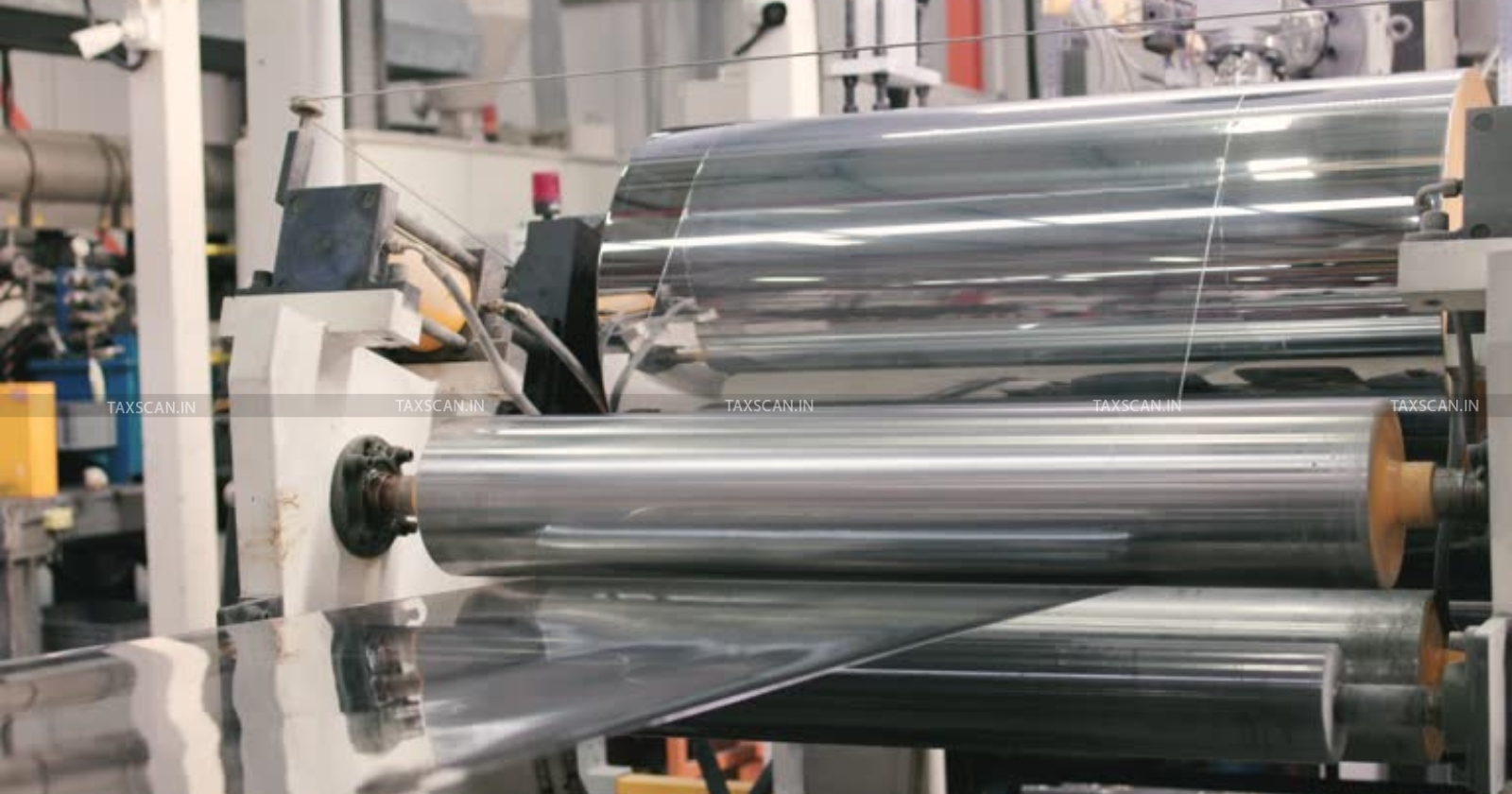Classification of ATM Rolls as Printing Industry Products: CESTAT sets aside Excise Duty Demands [Read Order]
The Tribunal relied on Chapter Note 14 under Chapter 48, clarifying that such products would remain under Chapter 48 only prospectively.
![Classification of ATM Rolls as Printing Industry Products: CESTAT sets aside Excise Duty Demands [Read Order] Classification of ATM Rolls as Printing Industry Products: CESTAT sets aside Excise Duty Demands [Read Order]](https://images.taxscan.in/h-upload/2025/10/02/2093254-atm-rolls-taxscan.webp)
The bench of the Customs, Excise and Service Tax Appellate Tribunal (CESTAT), Chennai, held that thermal paper rolls pre-printed with logos and other marks are classifiable under Chapter 49 as products of the printing industry, thereby setting aside the excise duty demands raised by the Department.
M/s MAS Computer Forms–Unit II, the appellant, had imported jumbo rolls of thermal paper under Tariff Heading 48119099 of the Central Excise Tariff Act, 1985. These were subsequently printed with customer logos, names, and advertisements, cut into size, and sold as ATM rolls. The appellant classified these under Heading 49019900, treating them as printed matter exempt from duty, while discharging 5% of the value of clearances under Rule 6(3)(i) of the Cenvat Credit Rules, 2004.
However, the Department disputed the classification, contending that the product was merely thermal paper and liable to 10% excise duty under Heading 48119099, issuing show cause notices under Section 11A of the Central Excise Act, 1961 and imposing penalties aggregating to ₹2.5 lakh under Rule 25 of the Central Excise Rules, 2002.
The adjudicating authority confirmed the demands and penalties, which were later upheld in part by the Commissioner (Appeals), Puducherry, however the penalties were subsequently set aside. Aggrieved by this, the assessee approached the Tribunal.
 Also Read:Laminating Plastic Films Qualifies as Manufacture: CESTAT Allows CENVAT Credit, Quashes ₹1.37 Crore Excise Demand [Read Order]
Also Read:Laminating Plastic Films Qualifies as Manufacture: CESTAT Allows CENVAT Credit, Quashes ₹1.37 Crore Excise Demand [Read Order]
Represented by Akshaya Benjamin, the appellant argued that the ATM rolls, being pre-printed with logos and customer details, were products of the printing industry falling under Chapter 49. The counsel relied upon several precedents including Supreme Court’s ruling in Commissioner of Central Excise Vs. Gopsons Papers Ltd., (2015).
It was submitted that the 2012 insertion of Chapter Note 14 under Chapter 48 clarified that only prospectively would certain printed paper products be retained under Chapter 48. Before that, such products were to be classified under Chapter 49.
Reliance was also placed on the Supreme Court’s decision in Commissioner of Central Excise v. Gopsons Papers Ltd. (2015), which held that printing is not incidental but essential, making such goods products of the printing industry.
Represented by Anandalakshmi Ganeshram, the Department contended that the appellant had misclassified the products to evade duty. It was urged that the Chennai Tribunal, in the appellant’s own case in 2019, had upheld classification under Chapter 48 and confirmed duty demands, and the present appeals should be dismissed on the same basis.
 Also Read:'Industrial Building' Not only includes Manufacturing Units but also includes IT & Software Offices for purposes of Property Tax: Delhi HC [Read Order]
Also Read:'Industrial Building' Not only includes Manufacturing Units but also includes IT & Software Offices for purposes of Property Tax: Delhi HC [Read Order]
The Bench comprising of Judicial Member, Ajayan T.V. and Technical Member, Vasa Seshagiri Rao observed that prior to 17 March 2012, the law as per Chapter Note 12 of Chapter 48 required that printing incidental to the primary use would fall under Chapter 48, but printing essential to the product’s use placed it in Chapter 49.
Applying this distinction, the bench found that the pre-printed ATM rolls were designed specifically for bank transactions, with barcodes, logos, and instructions already printed, leaving no alternative use. Printing, therefore, was not incidental but integral to the product’s purpose.
The Tribunal relied on the Supreme Court’s rulings CCE v. Gopsons Papers Ltd. (supra), holding that the ratio applied squarely to the present case. The bench clarified that its 2019 order against the appellant was per incuriam as it had not considered the Supreme Court’s binding decision.
Accordingly, the Tribunal set aside the impugned Orders-in-Appeal and quashed the duty demands.
Thus, the appeal of the assessee was allowed with consequential benefits.
Support our journalism by subscribing to Taxscan premium. Follow us on Telegram for quick updates


